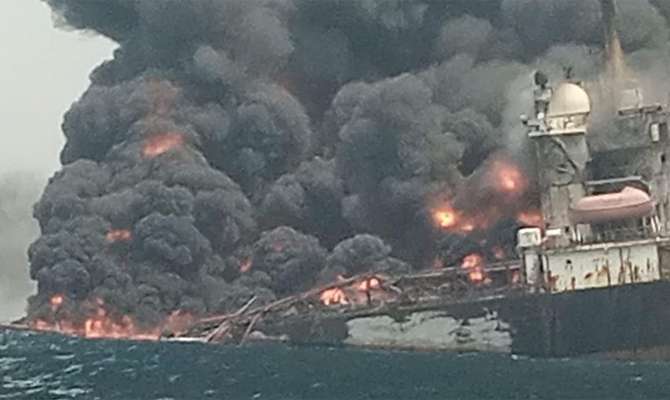
Olusola Bello with agency report.
The Trinity Spirit explosion is not expected to alter Nigerian oil production and will therefore not have an impact on oil prices in the short term, as the unit was not producing at the time of the explosion.
The primary concern is the potential environmental implications of the situation, which will be hard to quantify until after the dust settles and the aftermath is assessed.
The Trinity Spirit floating production, storage and offloading (FPSO) vessel was positioned in the Ukpokiti field off the coast of Nigeria, where it has operated since 1999.
The vessel is capable of producing liquids at the rate of 22,000 barrels per day (bpd), it is likely that the unit has not been producing oil since 2019, and has been used solely for storage purposes.
The maximum liquid production rate for this vessel – 22,000 bpd – represents less than 2% of the total Nigerian crude oil production based on 2021 levels of 1.3 million bpd.
The Trinity Spirit was capable of storing up to 2 million barrels of crude oil, but it is unlikely that it was operating at full capacity or had full storage at the time of the incident.
The impact of the Trinity Spirit leak in terms of leakage is likely to be considerably lower than the most recent large offshore oil spill, the Deepwater Horizon crisis which leaked around 4.9 million barrels into the Gulf of Mexico in 2010.
The hull of the Trinity Spirit was originally built in 1976 and the latest upgrade took place in 1997, highlighting the age of the vessel.
The Trinity Spirit was at the end of its lifespan, which is a cause for concern for other similar vessels and operations in Nigerian waters as they operate in a region with minimal regulations.
Since the company’s inception in May 2004, Shebah Exploration & Production Company Limited (SEPCOL) has rapidly driven its growth by acquiring oil assets and using its strong in-house technical and operational expertise to grow production in a cost effective manner. Asides developing oil and gas business interests in other parts of Africa, within Nigeria, SEPCOL has a 40% interest in oil block OML 108.
Currently bidding on acquisition of new oil and gas assets in Nigeria and also
reviewing interest in farm-in to certain assets in Nigeria.
The company is expecting to produce about 50,000bopd and about 300mmscf/day dry gas by year end 2019.
OML 108 – Background & Field Description
OML 108 (formerly OPL 74) was awarded to Express Petroleum and Gas Company in December 1990. Express assigned 40% interest to Conoco Energy Nigeria Limited as Technical advisor. Conoco relinquished its 40% stake in the block in 2004 and transferred it to Shebah Exploration & Production Company Limited same year.
OML 108 covers an area of 750sqkm in water depth of 88ft (30m) in the western edge of the Niger Delta in shallow water offshore Nigeria, six miles south west of Chevron’s Meren field but reaches water depth of 700ft (213m) on the southern portion of OML 108.
The block is composed of oil producing Ukpokiti field, Kunza discovery and deeper pool prospects in the southern portion of the block.
The Ukpokiti field comprising of 5 (five) oil wells and 1 injector wells. Two exploration wells (Kunza-1 and Kunza-2) drilled in the Kunza discovery intersected commercial volumes of gas and condensate and will form the basis for coming appraisal, development and exploration effort. OML 108 holds significant leads towards the southern part of the block.
OML 108 – Production Facilities
The FPSO Trinity Spirit serves and the primary production facility for the block and all production is processed and stored on the FPSO. The FPSO Independence was renamed FPSO Trinity Spirit. The FPSO has a processing capacity of 22,000 barrels per day and a storage capacity of 2 million barrels.
A well test loop is available with a 6 inches line; these networks have their own risers to connect the FPSO from the seabed that is 80ft under the sea level.
The crude processing facility consists of separators which handles a 3-stage separation of the crude. It also harbors an IWTS (Injection water treatment system) for produced water treatment used for reservoir pressure maintenance via water injection.




